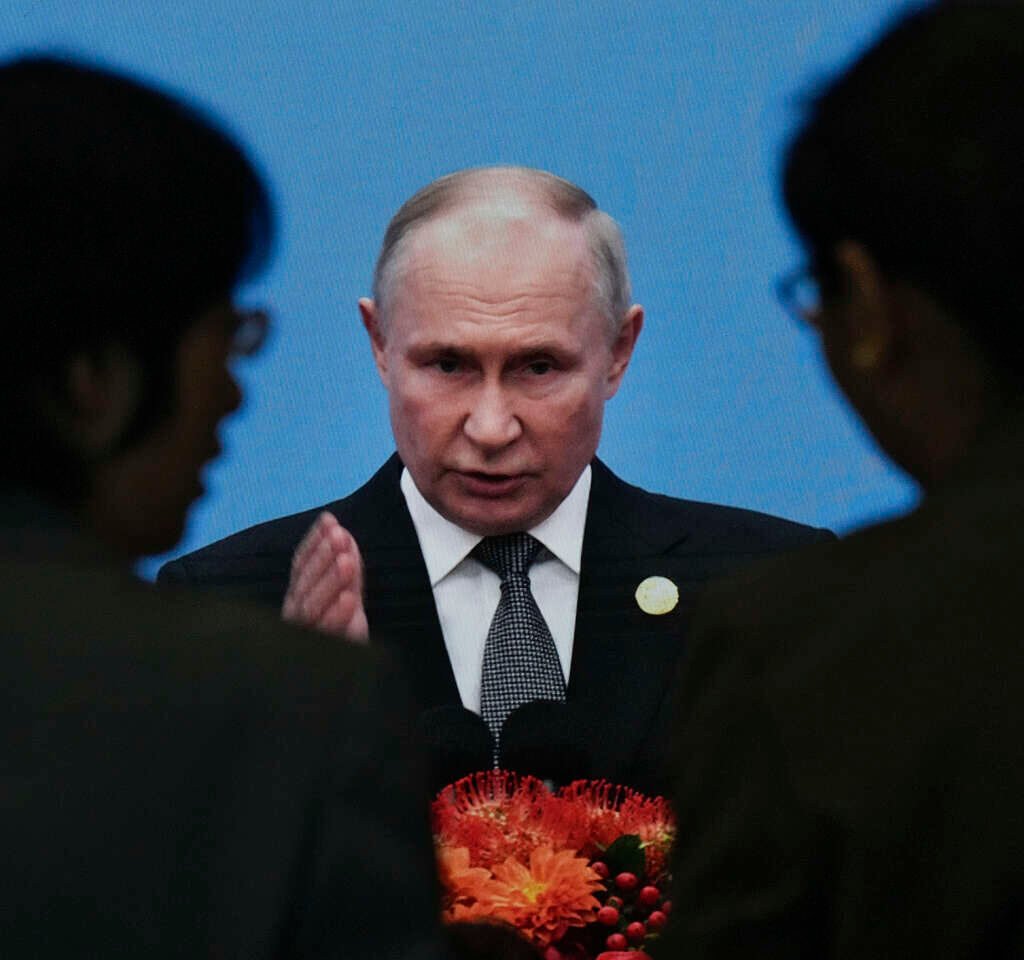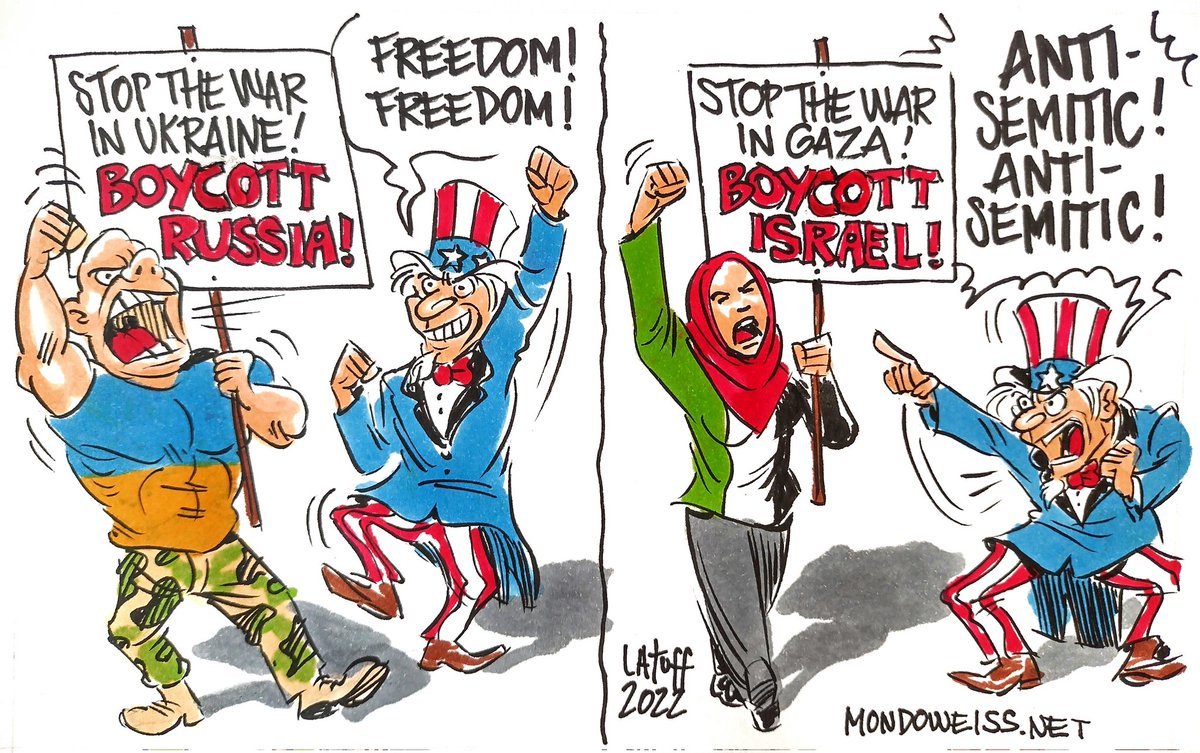In an interview with renowned journalist Piers Morgan, Bassem Youssef, an Egyptian TV host, pointed out a perceived moral inconsistency in the Western response to international conflicts. He expressed his observation about the Western hypocrisy, stating aptly, “In the past three weeks, Israel morally corrupted the West like no other. For years, the West has been telling us, ‘Look, we are liberals, and we are all about human lives and human rights,’ and then suddenly you don’t want to see; you don’t even want to say to Israel to stop.”
He uttered these words while commenting on the hypocrisy of the Western governments as evident from their uneven, inconsistent response to the two major conflicts of recent times – the Russian-Ukraine war and the Hamas-Israel conflict.
It is noteworthy that just a few weeks prior to the Hamas-Israel conflict, during the G20 summit in New Delhi, Western leaders were urging developing countries to strongly condemn Russian aggression against the civilian population of Ukraine. The condemnation is necessary, they argued, for upholding International Law and the UN Charter.
However, in stark contrast and as an example of Western hypocrisy, these same leaders, with only a few exceptions, have remained conspicuously silent regarding the Israeli aggression against the civilian population of Gaza which has claimed more than 8663 children’s lives as of now, more than the number of children killed annually in other conflicts around the world, including the Russia-Ukraine conflict.
It seems as though Western governments have suddenly disregarded their commitment to upholding the UN Charter and International Law.
From the statements of the Western leaders to their governments’ responses to the various resolutions adopted by the United Nations apropos of both conflicts, there is ample evidence that points towards the Western double standards in Ukraine and Gaza. Examining the statements initially, in March 2022, when Russian forces bombed a hospital in Mariupol, US President Joe Biden condemned the strike, labeling it a “disgrace to the entire world”.

However, a comparable denouncement from President Biden or other Western leaders was noticeably absent when Israeli airstrikes targeted the surroundings of Al Shifa and Indonesian hospitals in Gaza. In fact, President Biden went so far as to defend the actions of Israel during a press conference with Benjamin Netanyahu, stating, “Based on what I’ve seen, it appears as though it was done by the other team, not you.”
Similarly, Western leaders, including Justin Trudeau, Joe Biden, Pedro Sanchez, Mateusz Morawiecki, and Boris Johnson, have quite often characterized Russian actions in Ukraine as genocide. However, they have refrained, so far, from applying the same term to the Israeli actions in Gaza. This disparity becomes particularly evident in the statements made by the Western officials.
For instance, when questioned about the reluctance to label Israeli actions as genocide, especially in comparison to Russian actions in Ukraine, John Kirby, the spokesperson for the US National Security Council, candidly told the media, “Russia is slaughtering innocent Ukrainians as part of its war strategy. That is not what Israel is doing.”
Kirby’s statement appears ironic when one takes into account the statements of Israeli officials which clearly indicate a genocidal intent in the Israeli war strategy in Gaza. Isaac Herzog, the President of Israel, for example, suggests that the innocent civilian population of Gaza is a legitimate target.
And then we have the Prime Minister, Benjamin Netanyahu, who invoked a biblical story in his presser, in which Israelis were told to exterminate and literally kill all the men women, and children from an ancient tribe called ‘Amalek’, to justify the Israeli Defense Forces operations in Gaza.
The stance of Western governments at the United Nations regarding both the Russia-Ukraine conflict and the Israel-Hamas conflict serves as another significant indicator when examining potential double standards of the Western governments.
For instance, all the resolutions adopted by the UN General Assembly apropos of the war in Ukraine, which either seek the condemnation of the Russian attack or demand aid access and civilian protection in Ukraine, have been actively backed by the Western governments. However, a stark contrast emerges in the approach of the Western governments to similar resolutions addressing the humanitarian crisis in Gaza.
The most glaring example in this regard is the United States’ decision to veto a UN Security Council resolution on December 08, 2023. The resolution called for a ceasefire to facilitate humanitarian assistance into Gaza. Notably, it is not the first time, as a UN Security Council resolution of the same nature, condemning Hamas’ attacks on Israel and advocating for a ceasefire in Gaza, was also vetoed by the United States on October 18, 2023.

Similarly, two resolutions passed by the UN General Assembly on December 12 and October 28, last year, calling for the protection of civilians and upholding humanitarian principles in the Gaza crisis were rejected by the US while other Western countries, including the United Kingdom, Germany, Australia, Italy, Netherlands, and Ukraine, abstained from voting on the resolution.
To infer, the comparison of Western responses to conflicts in Ukraine and Gaza reveals a troubling pattern of inconsistency and potential hypocrisy on the part of Western governments. Importantly, this pattern of hypocrisy is not limited to Gaza; the case of Kashmir serves as another noteworthy example, warranting a separate discussion.
The repercussions of these inconsistencies extend globally, manifesting in a deepening east-west divide, an erosion of trust in the Western-led order, and reduced efficacy in addressing humanitarian issues on a global scale, which underscores the imperative for Western governments to address these inconsistencies proactively.
Also See: October 7th Hamas Attack on Israel – Just or Unjust War?


![Afghan men search for victims after a Pakistani air strike hit a residential area in the Girdi Kas village, Nangarhar province on February 22, 2026. [Aimal Zahir/AFP/Getty Images]](https://southasiatimes.org/wp-content/uploads/2026/02/gettyimages-2262391441.webp)



